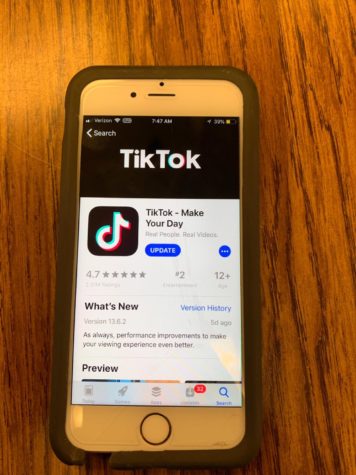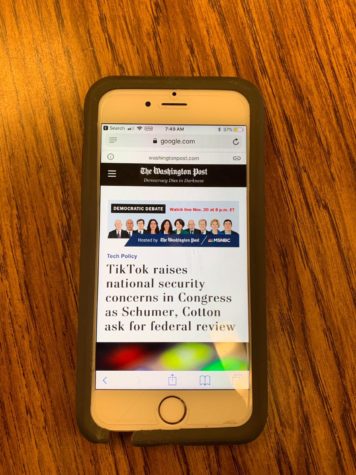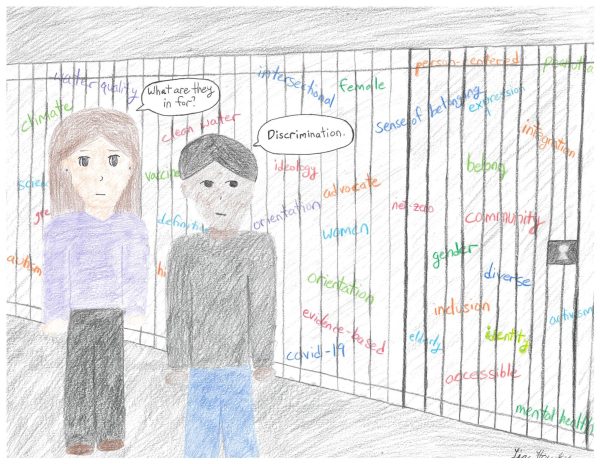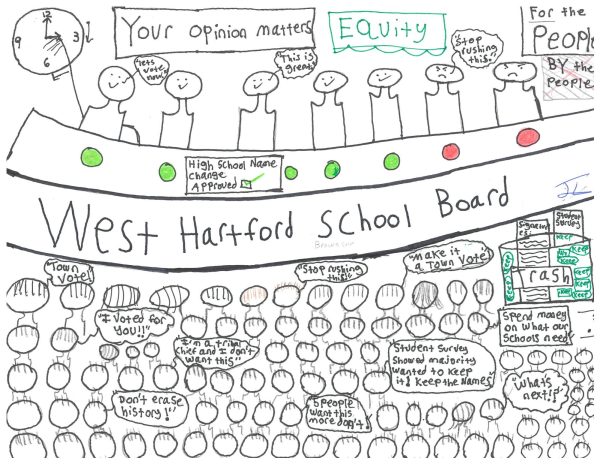The Truth About TikTok
A 35-year-old man was arrested recently for targeting children on the popular social media video-sharing app, called TikTok. Should you risk being the next target, or delete the app?
Young teens report being contacted by older men through the app, and state that they are very persistent with their inappropriate requests. Taking a deeper look into the user agreement all downloaders of the app adhere to, it was found out that TikTok takes advantage of their users with a long, time-consuming user agreement that they know most kids will not take the time to read.
Although it is mentioned in several sections of their terms and services that nobody is allowed to post any footage of alcohol, drug use, or other harmful videos such as people advocating for eating disorders, if you scroll through the app a majority of the content is exactly that.
What is TikTok? According to The Sun, TikTok is “Chinese video app that allows users to create and share short videos with special effects.”

TikTok App
While The Sun neglects to describe the negative aspects of their user platform, we hope to give you a fuller understanding of how this app works.
Most users are under the age of 16. Users on this app are proven to have a track record of lying about their age. Lots of young girls want to be and look older than they are. The most popular example of an age liar on the app is Danielle Cohn. While no source on the internet proves her actual age, the majority of sources state she is only 13. Until she was exposed,

Washington Post TikTok article
her fans believed her to be at least 18, based on the content she publicly shares on the internet, but many believe she could pass for 20 or older.
TikTok may seem like an innocent app that allows you to watch short videos, but it’s a platform for child predators. Users who post videos of themselves singing or dancing may accidentally attract the attention of a child predator, and put themselves in a very dangerous situation.
A majority of users do not take the time to read the terms and conditions of apps they sign up for and are often unaware of what information they’re putting in the hands of the company. One of the main problems with the app is that parents are not informed of the dangers that go along with allowing their kids to publicly post videos of themselves, oftentimes provocative just in the nature of the dance they are performing.
Men have contacted minors on the app, asking them to send photos or videos of themselves with likely poor intentions. Men, themselves, will too send unwarranted photos (oftentimes explicit) to young girls and damage their perception of what the internet is meant for.
Mirror.co spoke to the dangers of the app, “Children as young as eight are being targeted by sexual predators on popular live-streaming apps such as TikTok, a children’s charity has warned.”
Should an 8-year-old be allowed to use such a risky app? Should the company allow for such dangerous activities to occur on their site? The protocol is shaky, because as the internet is relatively new in the time humans have been around, TikTok is brand new.
Nobody is proficiently trained in the world of TikTok predators, and to expect anyone to know exactly how to handle these situations as they arise is not a simple task. The most anyone can do right now is stay off the app if they feel unsafe, and hope that TikTok will lawyer up to revise their terms and or least make an attempt to keep dangerous men off the app, as they have yet to do either of those in a way that would make a difference.
The most startling fact about TikTok is the wide-scale use of the app. Today, over 500 million people from around the world use TikTok monthly, and 26.5 million of the 500 million monthly active users are from the US. TikTok wields immense power concerning user data, personal information, and content. According to WDNU news, “The app also collects an alarming amount of data from its young users, including location, phone and social media contacts and more”.
This revelation rightfully concerns the users and makes people wonder why the app needs so much of your personal data. Mr. Katzman, a West Hartford father, states, “You get these young kids downloading the app, and they don’t know what kind of rights they are signing away. They don’t know what kinds of creepy people will try to get in contact with them.”
Parents don’t know the dangers of what information they are giving out to the companies. Not only is it the kids that are posting what they want online, the parents need to let the kids know what they are getting themselves into. Kids lie about their identity which is causing huge concerns.





